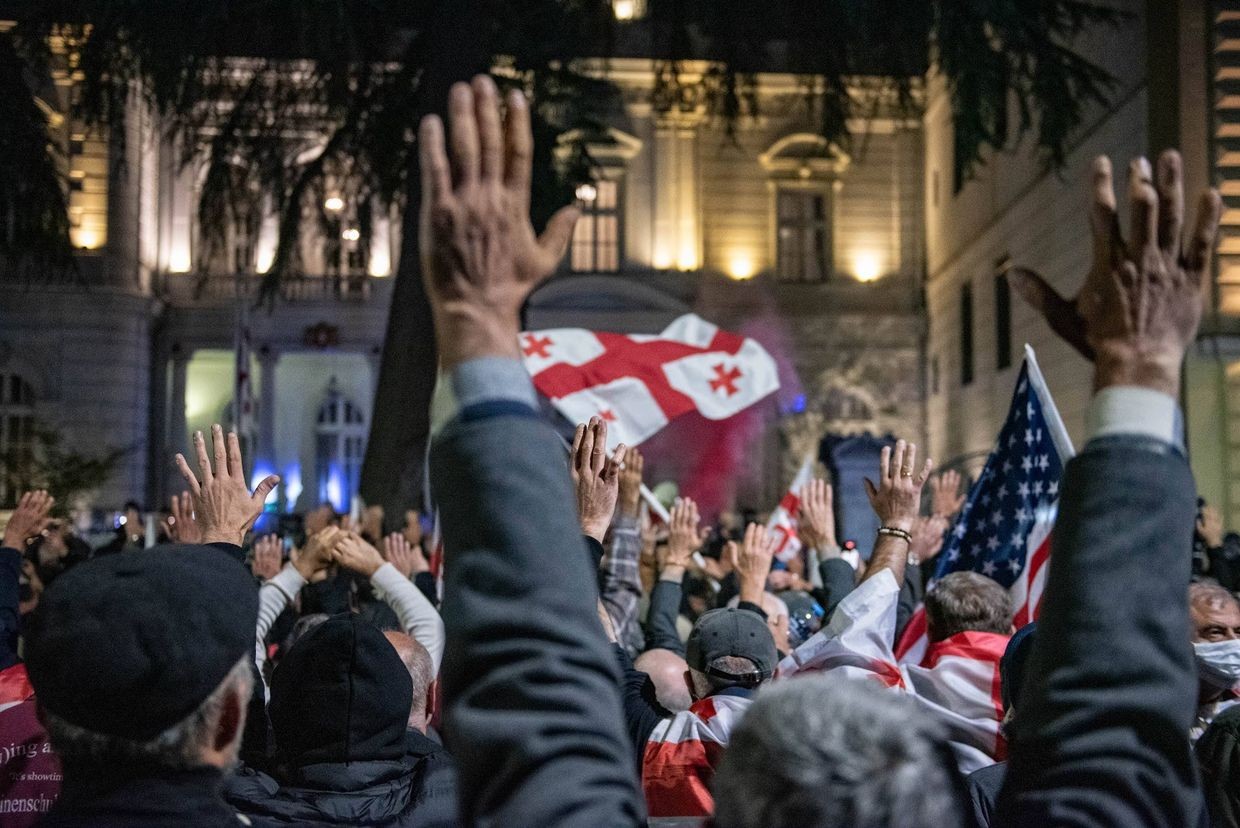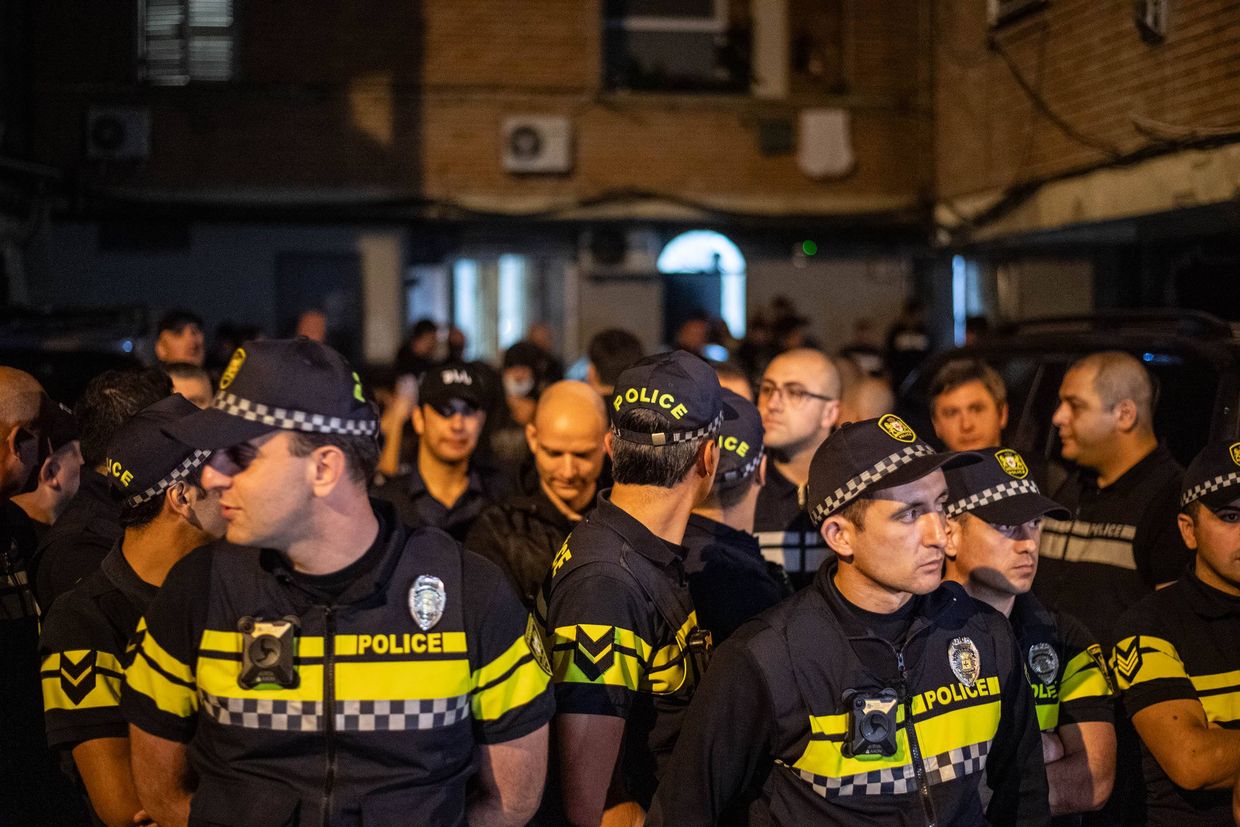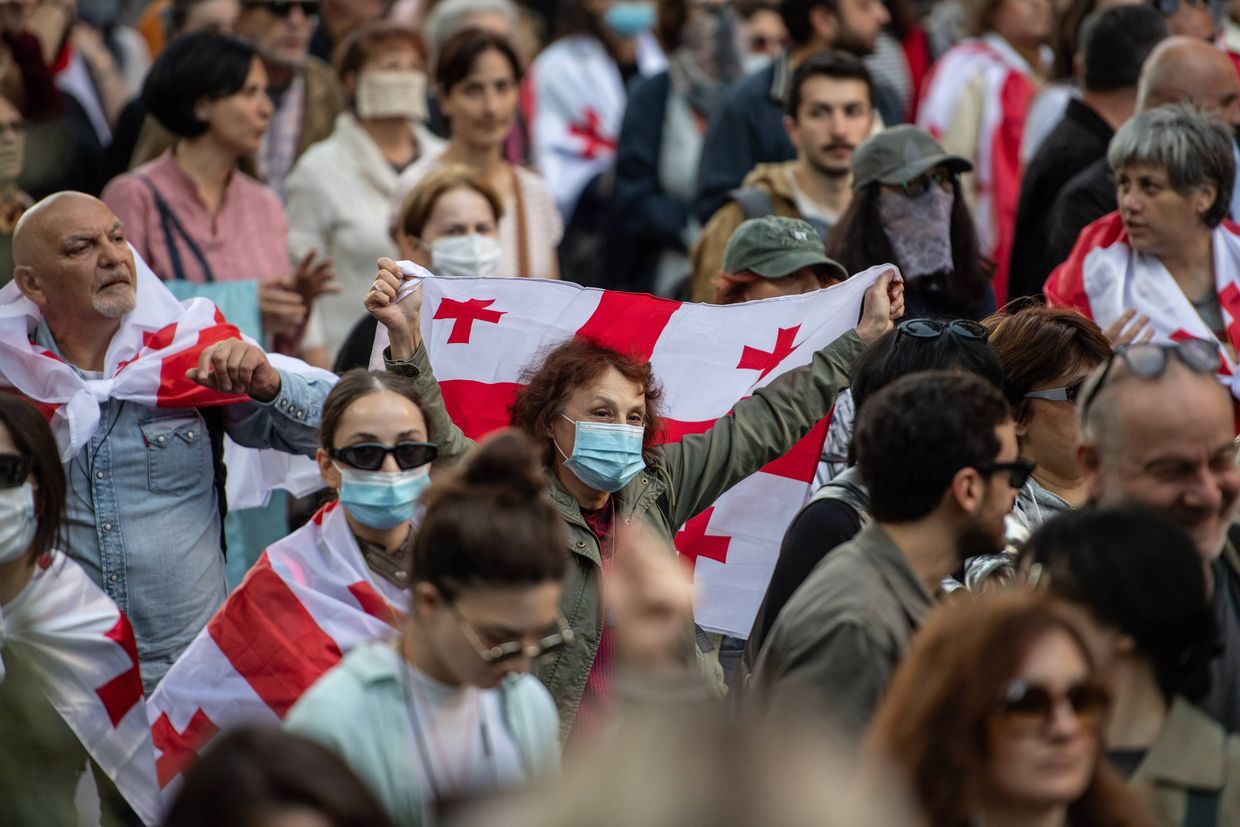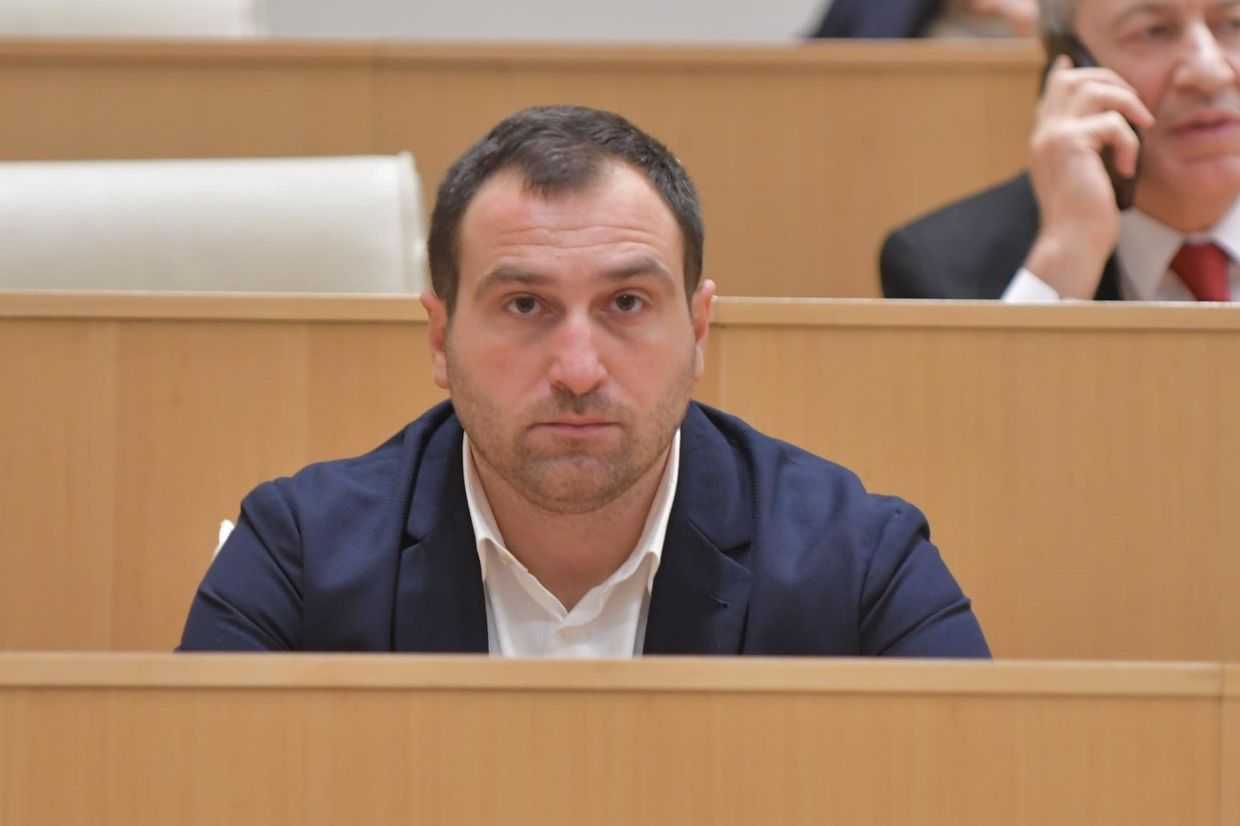
The Georgian Interior Ministry has announced the detention of 16 more individuals in connection with the 4 October protests in Tbilisi, bringing the official number of detainees in the case to 62.
Interior Minister Gela Geladze held a briefing on the new arrests early Friday evening. Prior to the ministry’s statement, activists and relatives of the detainees had already shared reports of the new arrests on social media.
The latest detainees included activist Mariam Mekantsishvili, a single mother and an active participant in the ongoing anti-government protests.
Just a few days before her arrest, on Tuesday, she had spoken with Elina Valtonen, the OSCE Chairperson-in-Office and Finland’s Foreign Minister, who visited the rally during her official trip to Tbilisi. Her appearance at the rally sparked outrage among local authorities.
Some have suggested that Mekantsishvili’s detention could be related to her on-camera conversation with Valtonen.
Among the detainees is also Simon Makharadze, a resident of the western Georgian town of Ozurgeti. Following his arrest, one of his relatives said in a Facebook live video that armed police entered the house early in the morning, pointed guns at the children inside, and even threatened to kill the family’s dog.
According to Geladze, some of those detained are charged with incitement to violently overthrow the constitutional order or the government, attempting to seize or block a strategic or high-importance facility, and organising or participating in group violence, while others are accused of using violence against law enforcement officers.
On 4 October, in parallel to the partially boycotted municipal elections, tens of thousands gathered on Tbilisi’s Liberty Square to attend an anti-government demonstration, branded previously as a ‘peaceful revolution’.
In the early evening, after hearing a call for male demonstrators to march toward the nearby presidential residence on Atoneli Street, a group of protesters attempted to storm the building. In response, police used tear gas, water cannons, and pepper spray. Protesters built barricades, and sporadic clashes around the residence continued late into the night.
The Georgian government has since called the unrest a coup attempt which it has blamed on domestic opposition they claim was aided by ‘foreign intelligence services’.
Among the detainees are all five opposition figures who positioned themselves as organizers of the protest. They face up to nine years in prison.
Since 4 October, the court has ordered pre-trial detention for nearly all detainees, including those with hard social or health conditions — except for two. Among those released on bail is 71-year-old pediatrician Giorgi Chakhunashvili, whose arrest sparked outrage, including among fellow doctors.

Daily anti-government protests in Georgia have been ongoing since the government’s 28 November 2024 decision to halt the country’s EU membership bid, which came after disputed parliamentary elections a month earlier.
The state initially attempted to suppress the protests through brutal police violence, later resorting to numerous restrictive laws and heavy fines. In the first phase of the protests, criminal cases were opened in over 50 instances, with many of the detainees already sentenced.
After 4 October, Georgian Dream authorities intensified statements aimed at quelling the daily protests, with Prime Minister Irakli Kobakhidze threatening a policy of ‘zero sympathy’ toward the movement.







![Baia Margishvili standing in central Tbilisi with a sign reading: ‘The Prosecutor’s Office [is] a punitive squad. How many more innocent people will you put in prison?’ Photo: Mariam Nikuradze/OC Media.](/_next/image/?url=https%3A%2F%2Fassets.bucket.fourthestate.app%2Foc-media-prod%2Fcontent%2Fimages%2F2026%2F02%2Fcalls-for-sanctions-and-raids-19-10-25-48.jpg&w=3840&q=50)



